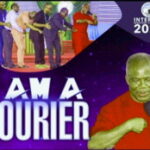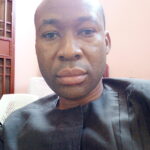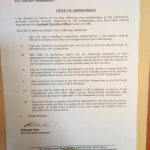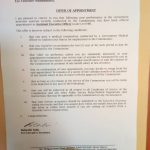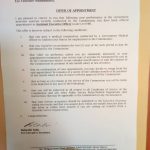Profile: wxdronnie1807924
The BBC News brings you the latest, breaking news from our trusted global network of journalists.
Stories from topics you add will appear in your personalised My News feed. Here you can order stories by topic or time, and use the Manage Topics screen to stay on top of the news of the day. You can also switch the My News by Topic screen to a more traditional carousel view from the Settings screen. The app can suggest topics based on stories you’ve recently viewed and what’s in the news now.
And you can quickly find topics that interest you using the Topic Search.
Choose from the familiar list of BBC News indexes such as Business, Technology, Entertainment and Health, or search for your own subjects of interest, whether they’re people, places, things or themes. Most Read and Most Watched. Live BBC World Service Radio.
Support for dynamic text. Related stories, related topics. If you choose to receive push notifications, a unique identifier relating to your device will be stored by Urban Airship on behalf of the BBC to provide you with the service. You can choose to unsubscribe from push notifications from BBC News in your device’s ‘Notifications’ screen. No other personal data relating to you (such as a username or email address) is processed.
The BBC will keep your information secure and not share it with anyone else in accordance with the BBC’s Privacy and Cookies Policy.
Firefighters warn the death toll from the fire could rise as investigators suspect arson. The street act in Malaysia saw a man swinging the baby by its legs and throwing it into the air. Toronto police swooped after Bruce McArthur brought a potential ninth victim back to his flat.
Liverpool boss Jurgen Klopp says the mistake in allowing Liverpool's goal in the draw at West Ham influenced the referee's performance in the second half. Australia's NRL deregisters Ben Barba over an alleged "physical altercation" with his partner. Caretaker boss Ole Gunnar Solskjaer has improved the mental state of Manchester United's players, says ex-Reds winger Jordi Cruyff.
When you’re in ‘the zone’, creative work comes easily. But can you force it?
The BBC is the world's oldest national public service broadcasting organisation, providing a range of services including 10 national TV channels plus regional programming, 10 national radio stations, 40 local radio stations and an extensive website. Though the BBC mainly serves the UK, the BBC World Service broadcasts to the world on radio, on TV and online, providing news and information in 27 languages.
Live events such as the Olympics, Wimbledon or a multi-stage music festival present a TV broadcaster with the challenging question of which sports, matches or acts to show at one time. Multiple streams solve this problem by presenting viewers with a broad choice of sports, matches or stages.
During the 2012 London Olympics the BBC offered 24 sports events as live feeds on both HD and SD on satellite and cable. The total viewing time was around 2,500 hours. BBC viewers were able to access the different sports events with ease via the red button or EPG.
For the 2014 Wimbeldon Championships (June), the Glastonbury Music Festival (running parallel in June) and the Commonwealth Games (August) SES will provide one UK Spot Beam Txp to the BBC. This additional capacity will be used to broadcast five SD streams and one HD stream.
More thoughts, submitted on an occasional basis by our Guest Blogger: Jack Diamond. Did you know that the British Broadcasting Corporation (the BBC) spends less than half its budget on making programmes for TV and radio? The BBC has an annual budget of £5.1 billion but just £2.4 billion of this goes on making programmes.
So where does the rest of the money go? Well, apart from rather a lot of inflated salaries (100 of the top BBC staff earn more than the Prime Minister of the UK), a recent report revealed that £230,000 of licence fee money was spent on tea. Yes, that’s tea, as in the beverage.
Plus, every week, and again I’ll repeat that, every week the BBC spends £100,000 on consultants.
These are, apparently, management and public relations consultants. One would have thought that, out of a staff of 16,672 (as at October 2014), there would already be enough managers and public relations people. But no, apparently not. Oh, and there was that £470,300 which was paid to George Entwistle, the former Director General (the boss in other words) who only held the position for 54 days.
I’ll have to leave someone else to work out Mr Entwistle’s hourly rate but I bet it comes in substantially above the UK Government’s Minimum Wage. The BBC - that’s the British Broadcasting Corporation (please take note of the emphasis on the word British) - also likes to advertise the fact that it offers news in 27 different languages.
Now, I know we live in a multicultural society here in Britain, but I rather think the BBC should be aiming its broadcasts at people who speak English i.e. the residents of Britain. Why does it feel the need to provide news in Swahili or Uzbek or Urdu or even Gaelic?
And I haven’t even mentioned Sinhala (what or where is that?) or Kyrgyz or Vietnamese. I’m just wondering how many people in Uzbekistan or Kyrgyzstan are actually tuning in to this? What’s the BBC’s target market in these countries and, quite honestly, is it worth the time, money and resources?
And, whilst I wouldn’t want to encourage the BBC to offer its news service in any other languages (for surely 27 is enough already), what about our European neighbours in Germany, Spain, Portugal, Greece, Italy, Denmark, Norway etc etc etc? Why offer a service to people in Vietnam and Burma but not those closer to home?
Honestly, where’s the logic? Noun: an extravagant trip or celebration, in particular one enjoyed by government officials at public expense. Verb: attend or go on a trip or celebration at public expense. In 2014 the BBC sent 300 staff to Somerset to cover the annual Glastonbury Music Festival in Somerset, UK.
Now, I’m sure you need a fair few people to operate the cameras and do interviews etc, but 300?
And then we come to the BBC’s sponsorship of the African Footballer of the Year. An African footballer of the year, fine, why not, but why is the BBC involved? How does an African Footballer of the Year relate to Britain and the British Broadcasting Corporation? Yes, a few of the players nominated for the award play in the English Premiership but many don’t.
Surely the whole ethos of the BBC should be that it should be for the benefit of people in Britain. There must be companies in Africa who could be sponsoring this event, after all it is to celebrate an African footballer not a British one. Why is the UK BBC licence fee payer picking up the bill?
Sorry, but copying text is forbidden on this website! Quality broadcasting does not constantly keep pace with traditional broadcasting and this duty, to make available to the masses with what is conceivably necessary rather than miscellaneous, stays at the core of public service broadcasting.
As a result, funding is more often than not gained from taxation, contributions, state subventions, consenting to the importance to be on the esteem to society rather than audience ratings. But in an era of digitization and media junction, the radio and television audience is hastily turning into more broadly detached within a new-fangled multi-media, multi-channel setting.
The stated mission of the BBC is ‘to inform, educate and entertain,’ and the motto of the BBC is ‘Nation Shall Speak Peace Unto Nation’" ("British Broadcasting Corporation"). This way, the British Broadcasting Corporation also reflects the British touch of culture and heritage with entertainment, music, events, and news that are relevant to identifiable chunks of the larger Western marketplace.
Entertainment is indigenous to specific European migrants across the globe, and that resonates in the programming of this format also. The local shows are an integral part of the station’s defined lifestyle and are perceived by viewers as communicating directly to them.
When the programs and documentaries broadcasted on BBC are delivered in a style that reflects the station’s format, and the message is relevant to the English viewers’ culture and heritage, there is a strong, personal connection. The body of research in this paper identifies the theories, concepts, and studies that were used in the study.
2008). Leading in program production worldwide, the BBC presents entertainment and media services to a wide-reaching audience through television, radio, and Web-based machineries. But BBC is a Public Service Broadcasting Company. Disengagement from the British government and vested interests implies that the British Broadcasting Corporation can tender a dispassionate and evenhanded standpoint, principally in the sphere of journalism.
Whether the organization is strictly unbiased is challenging to gauge. What sets the British Broadcasting Corporation apart from other multimedia networks is its non-commercial business approach. In any case, there is the danger of having violence bulletins being found incredible at times with the flood of commercials punctuating the program.
This is because of the capitalist theory of molding the news as per price of the news. Professor Justin Lewis of Cardiff University cites an instance when commercial pressures have influenced news output. Local news broadcasting in the US is commercially successful, and research studies show that crime stories consistently draw the largest audiences.
"Suddenly there seemed to be a crime wave across the US," says Lewis. "But crime figures were actually decreasing. Of course if you ask the public, they would tell you crime is increasing. After all, recent surveys speak of the majority of the U. S. adult population as skeptical about the news and information programming on public broadcasting being biased. Making devolution of media services work begin with the British Broadcasting Corporation officials assuming a more assertive role as institution managers for "morale, welfare and recreation" delivery ("British Broadcasting Corporation").
There is no doubt that the British Broadcasting Corporation does face a large set of variables as it takes place over different countries and it does act in different environments.
One of the most determinant environments to the success of the British Broadcasting Corporation is culture, which holds the reason for many human acts and behavior. 2008). Like any organization, the British Broadcasting Corporation has its own history of success, which reinforces and strengthens the organization’s way of doing things.
The older and more successful the organization, the stronger its culture, its nature, its identity becomes. They are communities of people with a mission, not machines. In recent years, the British Broadcasting Corporation board has reviewed its interest in analyzing the operations’ accomplishments.
The literature evokes that the development of global culture rapid changes in technology in the last several decades has changed the nature of culture and cultural exchange. Governments and corporations have gained vast amounts of political power through military might and economic influence (Ewing and Meissner, 2004).
Corporations such as the British Broadcasting Corporation have also created a form of global culture based on worldwide commercial markets. Local culture and social structure are now shaped by large and powerful commercial interests in ways that earlier anthropologists could not have imagined.
The British Broadcasting Corporation (BBC) has rejected a request from British stars to call for the 2019 Eurovision contest to be moved out of Israel. Because Israeli singer Netta Barzilai won the competition in 2018, the competition is being held in Tel Aviv this upcoming May.
In a January 29 letter in the UK Guardian, numerous UK stars - including musicians Roger Waters and Peter Gabriel - advocated for the BBC to ask for Eurovision to be relocated since the network will be broadcasting the competition. The BBC rejected their request, arguing that the competition is apolitical.
"The competition has always supported the values of friendship, inclusion, tolerance and diversity and we do not believe it would be appropriate to use the BBC’s participation for political reasons," the network said in a statement. "Because of this we will be taking part in this year’s event.
Radio listening spread widely during the 1930s, with people gathering together to listen to national and sporting events, while the BBC also became a major patron of the arts, commissioning music and drama. It also took up home at Broadcasting House in London in 1932, the same year as the Empire Service - precursor of the World Service, began broadcasting. Entertainment and drama on the Home Service kept up morale - particularly It's That Man Again, featuring comedian Tommy Handley. Meanwhile, the Empire Service - settling into new headquarters at Bush House - broadcast to occupied Europe.
Peacetime saw the resumption of the television service and a reorganisation of radio - which now boasted the Home Service, the Light Programme and from 1946, the Third Programme featured music, drama and the arts. The Empire Service continued as the External Service, now receiving "grant-in-aid" from the government, a situation which continues today with the World Service. The opening of Television Centre in Shepherd's Bush, west London came in 1960, playing host to groundbreaking satire That Was The Week That Was two years later. After careful planning, BBC Two was launched in 1964 - but a power cut disrupted transmissions on the first night.
Popular TV dramas like Cathy Come Home and Up The Junction captured the nation's attention, while playwrights Harold Pinter and Tom Stoppard were getting their breaks on radio. The success of pirate pop stations prompted the launch of Radio 1 in 1967, and the re-organisation of the Light, Third and Home networks into Radios 2, 3 and 4. The same year saw colour television come to BBC Two. More competition The 1970s saw Open University programmes come to the BBC, and the end of the Post Office's control of broadcasting hours. Teletext arrived in 1974 with early Ceefax transmissions - subtitling for the deaf - coming five years later.
The decade was also a strong one for BBC programmes, with Fawlty Towers, The Generation Game, Antiques Roadshow, Question Time, Top Gear and Not The Nine O'Clock News. The Falklands War saw reporter Brian Hanrahan tell audiences: "I counted them all out and I counted them all back in," as he watched Harrier jump jets return to their aircraft carrier after a raid. But Margaret Thatcher's government complained the BBC's reports were biased towards the Argentine point of view. The 1984 miners' strike saw similar complaints of bias - this time from the left. Further clashes with politicians took place throughout the 1980s. Michael Buerk's reports from Ethopia inspired the Band Aid and Live Aid fundraising efforts, while EastEnders was the BBC's answer to Coronation Street. The 1990s saw further change, as new director-general John Birt reorganised much of the BBC's internal workings, amid tremendous controversy. Expansion The BBC expanded with new channels - World Service radio being complemented by a BBC World television service, and satellite channel UK Gold helped it exploit its valuable archives.
The British Broadcasting Company was set up by a group of executives from radio manufacturers in December 1922. John Reith became general manager of the organization. In 1927 the government decided to establish the British Broadcasting Corporation (BBC) as a broadcasting monopoly operated by a board of governors and director general. The BBC was funded by a licence fee at a rate set by parliament. The fee was paid by all owners of radio sets. The BBC therefore became the world's first public-service broadcasting organization. Unlike in the United States, advertising on radio was banned. John Reith was appointed director-general of the BBC. Reith had a mission to educate and improve the audience and under his leadership the BBC developed a reputation for serious programmes.
Reith also insisted that all radio announcers wore dinner jackets while they were on the air. In the 1930s the BBC began to introduce more sport and light entertainment on the radio. The BBC began the world's first regular television service in 1936. This service was halted during the Second World War and all BBC's efforts were concentrated on radio broadcasting. Writers such as J. B. Priestley, George Orwell, T. S. Eliot, William Empson, and Charlotte Haldane were recruited by the BBC and radio was used for internal and external propaganda. This included broadcasting radio programmes to countries under the control of Nazi Germany. The BBC television service was resumed in 1946 and by the early 1950s it became the dominant part of its activities. It has been claimed that BBC is the most universally recognizable set of initials in the world. For example, by the end of the 20th century an estimated 150 million people were listening to BBC World Service radio.
What is the BBC? The British Broadcasting Corporation (BBC) is an independent, publicly-funded television and radio broadcasting organisation, with extensive interests in programme production, news gathering and commercial publishing. Since its launch, the BBC has been funded by licence fees - originally for both TV and radio, but since 1971, only for TV. The cost of the licence fee has been frozen at £145.50 until 2017. The level of the licence fee is set by the Government. This method of funding means that the BBC's activities are not influenced by the interests of shareholders or of advertisers.
An autonomous corporation under Royal Charter, the BBC is headed by an Executive Board which is responsible for the operational management of the Corporation and for the delivery of BBC services according to plans agreed with the BBC Trust. The Board is chaired by the Director-General and comprises executive directors from within the BBC and 5 non-executive directors from outside. The Director-General is chief executive and editor-in-chief of the BBC and is appointed by the BBC Trust. The BBC Trust is the governing body of the BBC and is made up of a chairman, vice-chairman and 10 other Trustees, four of whom have special responsibility for England, Wales, Scotland and Northern Ireland. The 12 Trustees are all appointed by the Queen on advice from ministers following an open selection process.
The current chairman of the BBC Trust is Lord (Chris) Patten, whose previous posts have included Conservative party chairman and (the last) Governor of Hong Kong. The BBC Trust is supported by the Trust Unit which is charged with providing objective and independent advice to the Trust. The Unit is led by Nicholas Kroll, former chief operating officer at the DCMS. The BBC is subject to Public Service Broadcasting requirements under its Charter, which is reviewed every ten years. Its Board of Governors exercise many of the regulatory functions that Ofcom performs in respect of other broadcasters. In its earliest days, the newspaper industry successfully ensured that the BBC could not compete with its monopoly of news services.
The Company was forbidden from broadcasting news until 7pm each day. When newspapers ceased to be published during the General Strike of 1926, the public turned to their radios for news. John Reith successfully convinced the Prime Minister Stanley Baldwin to reject calls from Winston Churchill and others to take the BBC into state control during the strike. In 1927, the BBC changed its name to the British Broadcasting Corporation, on receipt of its Royal Charter. However, radio's dominance was eclipsed in June 1953, with the coronation of Queen Elizabeth II. 22 million people watched the coronation, and it was a critical event in generating public enthusiasm for the technology.
The 1980s was a time of critical changes for the BBC, with the launch of Channel 4 in 1982, the proliferation of commercial radio stations and the development of multi-channel satellite TV. The Charter review of 1996 saw the BBC undertake a programme of "Extending Choice", by offering programming that commercial broadcasters would not produce. The early 21st Century saw the BBC moving into digital services, rolling out a range of new television and radio services. BBC North, an initiative to provide more broadcasting from outside London, began in May 2011. A new world-class base at MediaCityUK, Salford, aims to create a centre of excellence for production, technology development, training and digital media.
The BBC and many of its supporters argue that the Corporation is the most widely-respected broadcaster in the world. However, recent events and trends - combined with the BBC's position at the heart of the British media - have made it a particularly controversial subject. Throughout its history, the BBC has clashed with the Government of the day over its news reporting. During the Suez Crisis of 1956, the Eden Government considered taking control of the BBC because of perceived bias. At the same time, the BBC has frequently been accused of "dumbing down" its programming, in order to compete with commercial broadcasters for ratings.
Critics of the BBC frequently allege that programming quality is in decline, and accuse the Corporation of seeking only to entertain at the expense of education. These claims were given further credence recently when the Russell Brand show on BBC Radio 2 featured Brand and TV presenter Jonathan Ross leaving a series of offensive messages on the answer phone of veteran Fawlty Towers actor Andrew Sachs.
The incident provoked a huge public outcry and was condemned by both the Prime Minister and the leader of the Opposition. Consequently Brand left the show, Ross was suspended for three months without pay and BBC Radio 2 Controller, Lesley Douglas, resigned.


